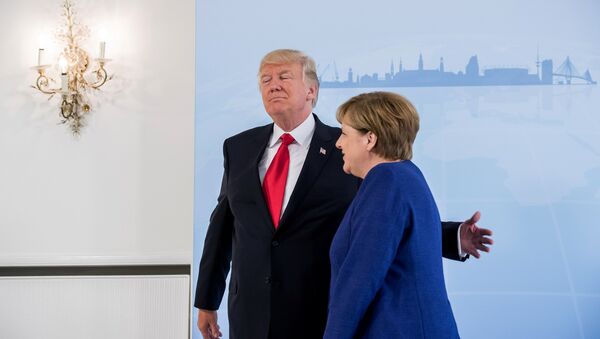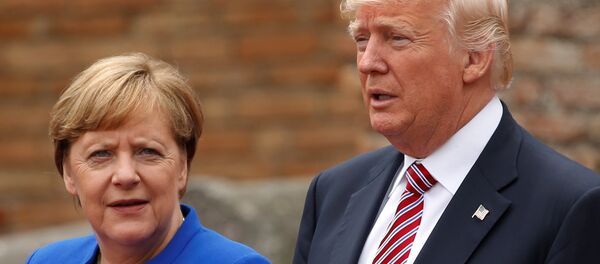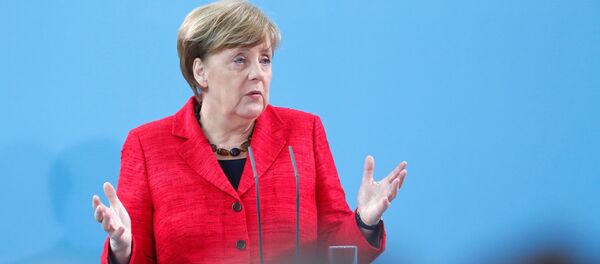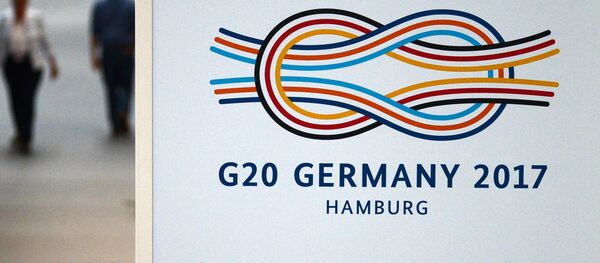German Chancellor Angela Merkel met with US President Trump for a one hour pre-summit meeting in Hamburg’s Hotel Atlantic on Thursday. The meeting was followed by short statements from both sides that the two leaders discussed trade, climate change, global security, the need to revive the Minsk Agreements and denuclearize North Korea.
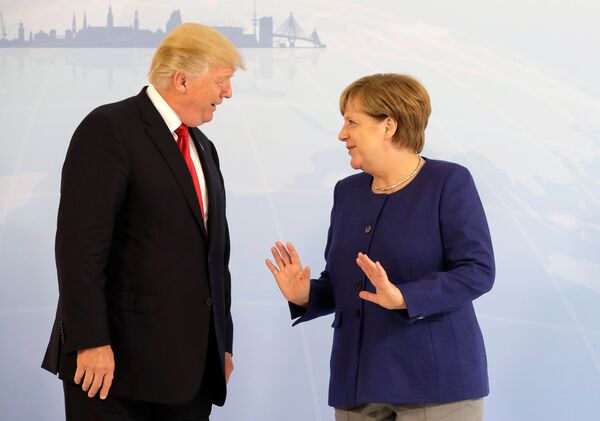
"The leaders conferred on a range of shared foreign and security policy priorities, including re-energizing the implementation of the Minsk Agreements, de-escalating the conflict between Qatar and some of its Gulf and Arab neighbors, and denuclearization of the Korean Peninsula," the White House said in a statement.
The two leaders held their bilateral meeting in a bid to coordinate on key policy areas ahead of Friday's G20 summit, according to the statement.
Political scientist Alexander Shpunt, the director of the Institute of Political Analysis Instruments at Moscow's Higher School of Economics, however, suggested that the two heads of states might have had very heated discussions which have not been made public.
"There might have been the harshest battle as Trump has been very clear that the US is withdrawing from the Paris climate agreement. This agreement, however, is one of the major political victories for Merkel, as for a global politician, and she simply can't lose it, especially ahead of her own elections," Shpunt told Sputnik.
He further suggested that there could have been very intense bargaining. The German Chancellor might have suggested shifting major blame to China for the increase of its steel production, which generates hydrocarbon emissions. This could soften the position of the US, given Trump's tough attitude towards China.
The second disputed issue is trade. However, here the situation is a lot more complicated, the political analyst said. Europeans were the ones to block the Transatlantic trade agreement, he said, as they were unsatisfied with the conditions pushed by then-president Obama. Trump has simply taken advantage of the opportunity. Hence the negotiations on this issue might have been really very arduous.
"Nothing will leak to the public from these talks. Meanwhile, the US and Germany will demonstrate a surprising unity at the G20 Summit. It is very important to Merkel, as she is currently in the midst of her election campaign and she needs to demonstrate that she is able to make agreements, even with such tough partners as Donald Trump," he stated.
In a separate comment on the issue, political expert Dmitry Ofitserov-Belsky noted to Sputnik that such discussions are a normal procedure in the wake of a large-scale event. However, given the current conditions it is especially relevant.
"Preparations for the summit include the discussion of all key issues. At least those countries that intend to promote certain topics are involved. It is obvious that the relations between the US and Germany leave much to be desired. Both want to normalize their relations, but on their own terms," Ofitserov-Belsky said.
The expert also recalled the idea of a transatlantic free trade agreement, but noted that it would be almost impossible to implement it now.
